Solar water heaters have gained popularity as an energy-efficient and environmentally friendly solution for heating water in households. Harnessing the power of the sun, these systems provide a reliable and cost-effective alternative to traditional water heating methods. In this article, we will explore the benefits, components, working principles, and installation considerations of solar water heaters for homes. Benefits of Solar Water Heaters: 1. Energy Efficiency: Solar water heaters utilize renewable energy from the sun, reducing dependence on fossil fuels and lowering carbon emissions. This translates into significant energy savings while promoting sustainability. 2. Cost Savings: Although the initial investment for a solar water heater may be higher compared to conventional options, the long-term cost savings are substantial. As solar energy is free, homeowners can experience reduced utility bills over the system’s lifespan. 3. Durability and Reliability: High-quality solar water heaters are built to last, with an average lifespan of 20-30 years. These systems require minimal maintenance and have fewer moving parts, resulting in increased reliability and lower operating costs.
Solar water
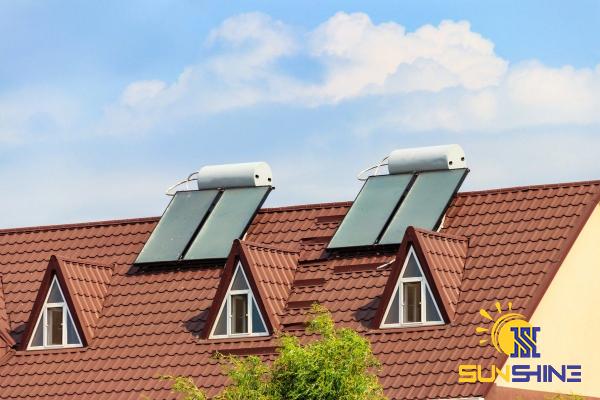 4. Energy Independence: By generating hot water on-site, homeowners can reduce their reliance on the grid. This aspect becomes particularly crucial during power outages or in remote areas with limited access to electricity. 5. Environmentally Friendly: Solar water heaters produce minimal greenhouse gas emissions, helping to combat climate change. By utilizing clean and renewable energy, homeowners can contribute to a healthier planet. Components of a Solar Water Heater: 1. Solar Collectors: These devices capture and absorb solar energy to heat the water. Flat-plate collectors, evacuated tube collectors, and integral collector-storage systems are the three main types of collectors used in residential applications. 2. Storage Tank: The storage tank holds the heated water until it is required for use. It is typically well-insulated to minimize heat loss. 3. Circulating Pump: In active solar water heater systems, a pump is used to circulate the heated water from the collectors to the storage tank. This ensures efficient heat transfer and even distribution throughout the home.
4. Energy Independence: By generating hot water on-site, homeowners can reduce their reliance on the grid. This aspect becomes particularly crucial during power outages or in remote areas with limited access to electricity. 5. Environmentally Friendly: Solar water heaters produce minimal greenhouse gas emissions, helping to combat climate change. By utilizing clean and renewable energy, homeowners can contribute to a healthier planet. Components of a Solar Water Heater: 1. Solar Collectors: These devices capture and absorb solar energy to heat the water. Flat-plate collectors, evacuated tube collectors, and integral collector-storage systems are the three main types of collectors used in residential applications. 2. Storage Tank: The storage tank holds the heated water until it is required for use. It is typically well-insulated to minimize heat loss. 3. Circulating Pump: In active solar water heater systems, a pump is used to circulate the heated water from the collectors to the storage tank. This ensures efficient heat transfer and even distribution throughout the home.
Specifications of solar water
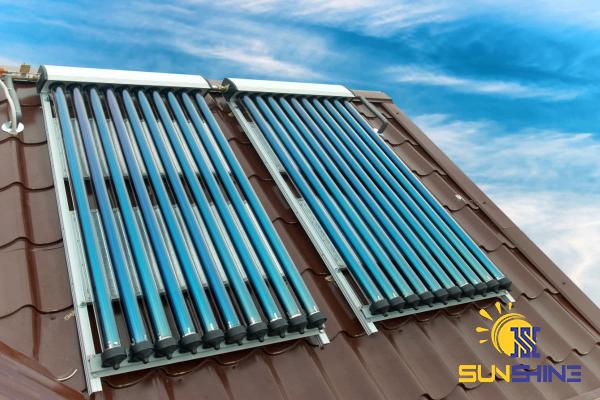 4. Backup Heating Source: In regions with limited sunlight or during times of high demand, a backup heating source, such as an electric or gas-powered element, is incorporated to ensure a continuous supply of hot water. Working Principles of Solar Water Heaters: 1. Passive Systems: Passive solar water heaters rely on natural convection and gravity to circulate water. As water is heated in the collectors, it rises, creating natural circulation. This system is simpler and requires no additional energy source, making it ideal for areas with ample sunlight and low water consumption. 2. Active Systems: Active solar water heaters utilize pumps or controllers to circulate water, ensuring optimal heat transfer. This system offers more control and is well-suited for regions with high water consumption or less solar radiation. It also allows for better integration with existing plumbing infrastructure. Installation Considerations: 1. Solar Resource: Before installing a solar water heater, it is essential to evaluate the solar resource available in your area. Factors such as average solar radiation and shading from surrounding structures or trees can impact system efficiency.
4. Backup Heating Source: In regions with limited sunlight or during times of high demand, a backup heating source, such as an electric or gas-powered element, is incorporated to ensure a continuous supply of hot water. Working Principles of Solar Water Heaters: 1. Passive Systems: Passive solar water heaters rely on natural convection and gravity to circulate water. As water is heated in the collectors, it rises, creating natural circulation. This system is simpler and requires no additional energy source, making it ideal for areas with ample sunlight and low water consumption. 2. Active Systems: Active solar water heaters utilize pumps or controllers to circulate water, ensuring optimal heat transfer. This system offers more control and is well-suited for regions with high water consumption or less solar radiation. It also allows for better integration with existing plumbing infrastructure. Installation Considerations: 1. Solar Resource: Before installing a solar water heater, it is essential to evaluate the solar resource available in your area. Factors such as average solar radiation and shading from surrounding structures or trees can impact system efficiency.
buy Solar water
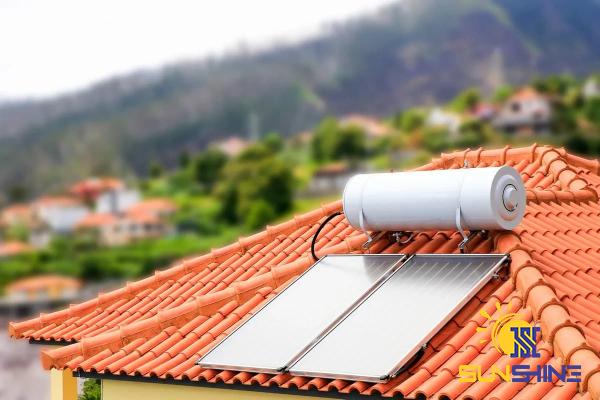 2. Roof Orientation and Space: Optimal system performance requires proper roof orientation and ample space for installing the solar collectors. Ideally, the collectors should face south (north in the Southern Hemisphere) and have minimal shading throughout the day. 3. System Sizing: Determining the appropriate system size is crucial to meet household hot water demands. Factors such as the number of occupants, water consumption patterns, and local climate conditions should be considered when selecting a system. 4. Local Regulations and Incentives: Familiarize yourself with local building codes, permits, and regulations governing solar water heater installations. Research available incentives or rebates that may help offset the upfront cost and encourage the adoption of renewable energy systems. Conclusion: Solar water heaters offer an environmentally friendly, cost-effective, and sustainable solution for residential water heating needs. With their long lifespan, energy efficiency, and potential for cost savings, these systems have become increasingly popular among homeowners. By harnessing the power of the sun, solar water heaters contribute to reduced greenhouse gas emissions and promote energy independence. With proper consideration of installation factors, homeowners can harness the benefits of solar water heaters, enhancing their overall energy efficiency and reducing their environmental footprint.
2. Roof Orientation and Space: Optimal system performance requires proper roof orientation and ample space for installing the solar collectors. Ideally, the collectors should face south (north in the Southern Hemisphere) and have minimal shading throughout the day. 3. System Sizing: Determining the appropriate system size is crucial to meet household hot water demands. Factors such as the number of occupants, water consumption patterns, and local climate conditions should be considered when selecting a system. 4. Local Regulations and Incentives: Familiarize yourself with local building codes, permits, and regulations governing solar water heater installations. Research available incentives or rebates that may help offset the upfront cost and encourage the adoption of renewable energy systems. Conclusion: Solar water heaters offer an environmentally friendly, cost-effective, and sustainable solution for residential water heating needs. With their long lifespan, energy efficiency, and potential for cost savings, these systems have become increasingly popular among homeowners. By harnessing the power of the sun, solar water heaters contribute to reduced greenhouse gas emissions and promote energy independence. With proper consideration of installation factors, homeowners can harness the benefits of solar water heaters, enhancing their overall energy efficiency and reducing their environmental footprint.
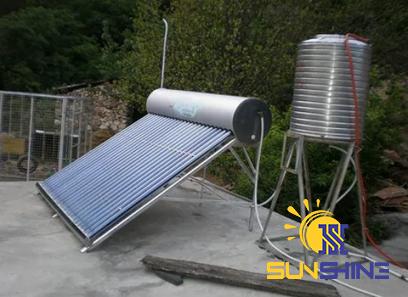
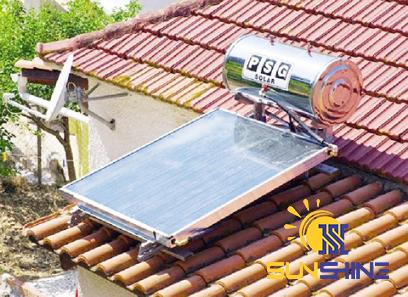
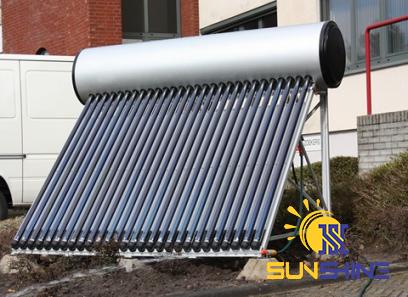
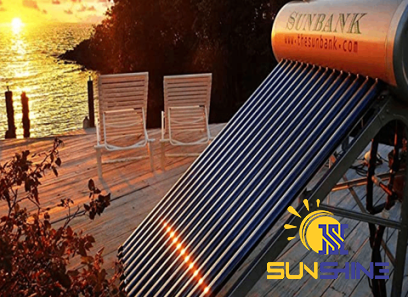
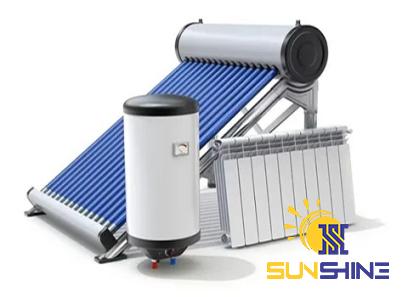
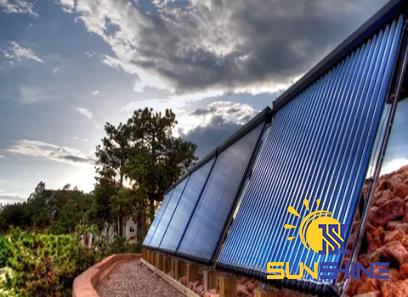
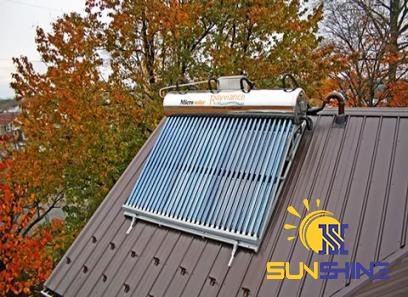
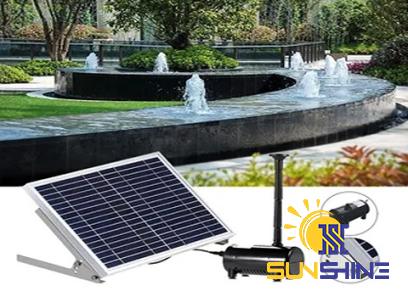
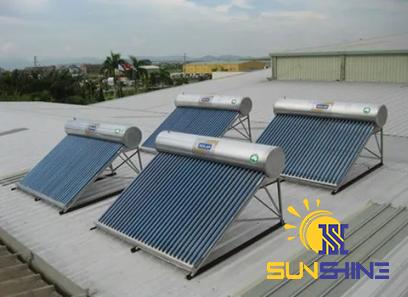
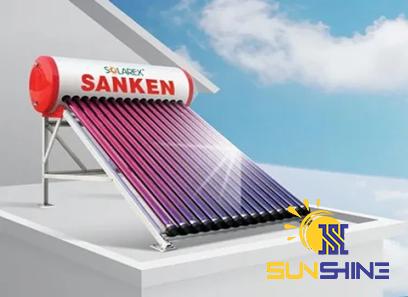
Your comment submitted.